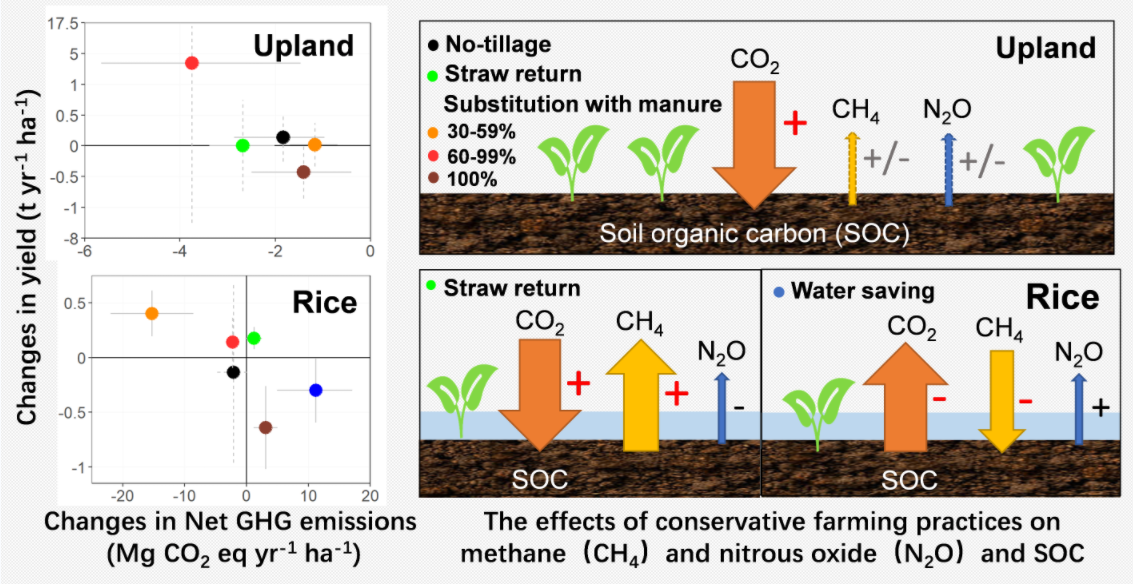Conservative agricultural practices can sustain high crop yield and reduce greenhouse gas emissions
Date:2021-07-29Author:Weijian ZhangSource:
The Innovation Team of Farming System and Agro-Ecology, Institute of Crop Sciences, Chinese Academy of Agricultural Sciences, demonstrated conservative agricultural practices, such as straw incorporation and no-tillage, can increase or maintain high crop yield and reduce greenhouse gas (GHG) emissions. This research has been published in Global Change Biology, which is another important finding revealed by the team following high-yielding and GHG-mitigated farming system for paddy rice.
To achieve the win-win strategy of food security and agricultural “Dual Carbon” goals, a comprehensive assessment of new farming technologies for food production and GHG emissions is necessary, to design a green and low-carbon farming system. Previous studies investigated one or two types of GHGs only, this study initially investigated the integrated effect on net GHG emissions (including methane, nitrous oxide, and soil carbon sequestration) and crop yields from conservative farming practices (i.e., no-tillage, straw incorporation, substitution of synthetic fertilizer with manure and water-saving irrigation). An observation network was compiled, including 347 simultaneous measurements of methane and nitrous oxide emissions and grain yield, and 412 soil organic carbon sequestration rates. This study highlights conservation farming practices in upland cropping system can achieve yield increase and GHG mitigation synergistically, mainly by promoting soil organic carbon sequestration especially in warm areas. For paddy rice system, net GHG emissions under straw incorporation and water-saving irrigation are mainly determined by the tradeoff between soil organic carbon sequestration and methane emissions, with various spatial differences deserving further investigation. This research can provide an important scientific basis, for the selection of carbon-neutral farming technology and the determination of regional GHG mitigation strategy, to ensure national food security.

Figure: conservation farming practices help achieving yield increase
This work is first-authored by Dr. Ziyin Shang from the Institute of Crop Sciences, Chinese Academy of Agricultural Sciences. The research was supported by National Key Research and Development Program of the 13th Five-Year plan and the Science and Technology Innovation Project of the Chinese Academy of Agricultural Sciences. This work was also greatly supported by co-supervisor Prof. Pete Smith, a fellow of the Royal Society from the University of Aberdeen.
Reference resource: https://onlinelibrary.wiley.com/doi/pdf/10.1111/gcb.15796
